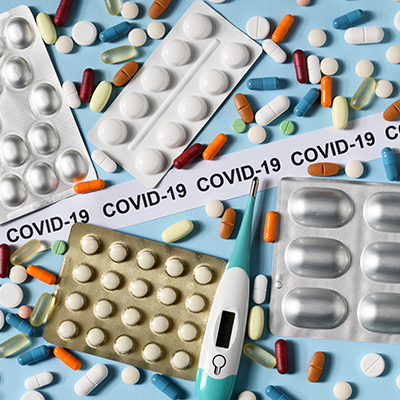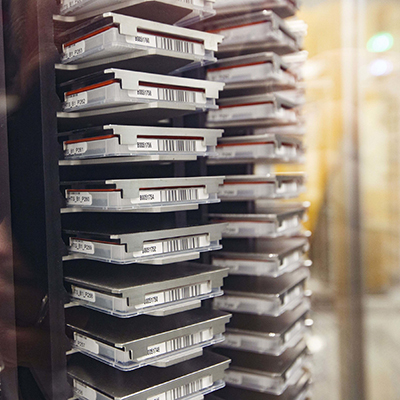June 16, 2020 -- The U.S. Defense Advanced Research Projects Agency (DARPA) has awarded the Wyss Institute for Biologically Inspired Engineering at Harvard University $16 million to test existing drugs that could be repurposed to prevent or treat COVID-19.
The research will be conducted by a team of scientists at the Wyss Institute, the University of Maryland School of Medicine, and the Icahn School of Medicine at Mount Sinai. Computational drug discovery pipelines are being combined with human organ chip technologies to find compounds that have been approved by the U.S. Food and Drug Administration (FDA) for other clinical indications that might also show promise against the SARS-CoV-2 virus.
Lead compounds identified by Wyss researchers are being tested in high-throughput cell-based assays with SARS-CoV-2 at the University of Maryland. The most promising candidates are then sent to Mount Sinai for testing in COVID-19 animal models. In vitro analysis of human response to SARS-CoV-2 infection via human organ chip technology is being established at both the Wyss Institute and the University of Maryland.
Moreover, the Wyss Institute is also partnering with the Beth Israel Deaconess Medical Center and State University of New York Downstate Medical Center, where they are collecting clinical samples from COVID-19 patients and carrying out RNA analysis using the sequencing core at the Broad Institute of Harvard and Massachusetts Institute of Technology, which they can feed back into the Institute's computational discovery pipeline.
Computing for COVID-19
The Wyss Institute is implementing novel approaches to three computational pipelines that harness the power of data analytics, machine learning, and computer science to address a number of different diseases.
The first approach, called DRUID (Drug Indication Discoverer), leverages a machine learning algorithm to sift through gene expression data from tens of thousands of known drug compounds. The algorithm can identify which molecules have the potential to revert a disease-state expression pattern and phenotype back to a normal one.
The second approach uses multiscale computer-based molecular simulation techniques to create virtual versions of molecules whose properties can be modeled and analyzed. This molecular dynamics repurposing system has been used to model the SARS-CoV-2 spike protein and develop small molecules targeted against a specific region of the protein.
The last approach, network model for causality-aware discovery (NemoCAD), uses a network analysis-based algorithm to compare genetic networks found in COVID-19 patients with those in healthy patients, and identifies drugs that could change the network state to that of a healthy patient.
From computers to clinic
The Wyss cell biology team recently submitted an article on bioRxiv describing how they used cultured human lung cells in lung airway chips -- a form of organ chip -- to identify two approved compounds that inhibit infection with a SARS-CoV-2 pseudovirus. The teams from the University of Maryland and Mount Sinai were able to safety test the compounds safely against the real SARS-CoV-2 virus in their biosafety level 3 facilities. Cumulatively, the groups have created a full drug-testing pipeline that has demonstrated compound safety and efficacy against the virus in animal models.
With DARPA's funding, the teams are establishing organ chip testing programs in each of their labs so that they can infect human lung chips with the SARS-CoV-2 virus and study organ-level inflammatory responses. Moreover, the teams will engage with government partners and regulators to expedite the translation of drugs found to be effective against SARS-CoV-2 for use in the clinic.
"Through our cell and lung-on-a-chip-based antiviral testing system, we will be able to better predict candidate therapeutics for priority in animal models and eventually human trials," said Matthew Frieman, PhD, associate professor of microbiology and immunology at the University of Maryland School of Medicine.
Do you have a unique perspective on your research related to drug repurposing or drug discovery? Contact the editor today to learn more.
Copyright © 2020 scienceboard.net









